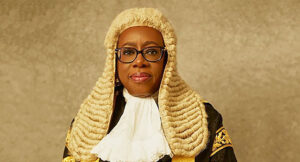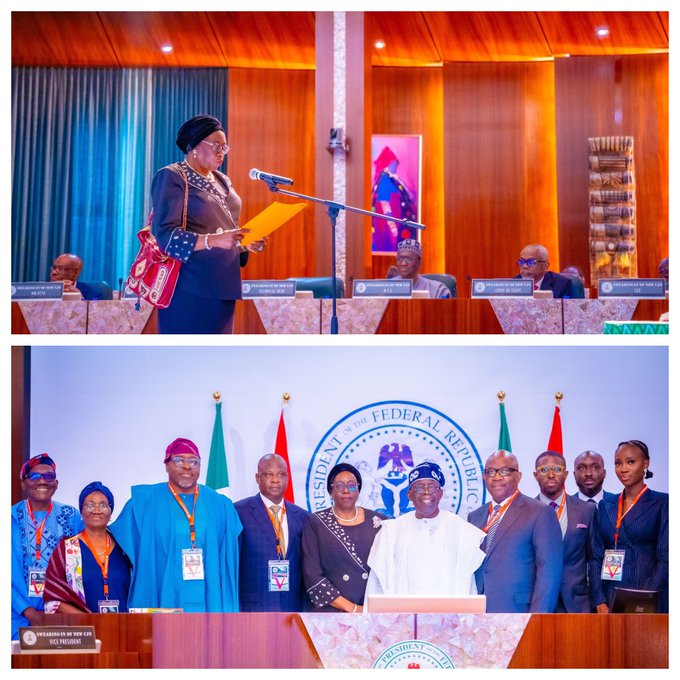Justice Kudirat Olatokunbo Kekere-Ekun has outlined her main agenda for the judiciary, after being sworn in by President Bola Ahmed Tinubu, Acting Chief Justice of Nigeria.
This was posted on Bayo Onanuga’s X handle on Friday, 23rd August, 2024.
- levating the Judiciary to New Heights
Justice Kekere-Ekun is determined to raise the standards of the judiciary, aiming to enhance its efficiency and effectiveness across the board.
- Restoring Public Confidence in the Judicial System
She emphasized the importance of rebuilding trust, stating that restoring public confidence in the judiciary is crucial for a fair and just society.
- Collaborative Effort for Improvement
Believing that progress requires collective effort, she called for the maximum cooperation of all judicial stakeholders to bring about necessary improvements.

- Focusing on the Process of Appointment
Recognizing concerns over judicial appointments, Justice Kekere-Ekun pledged to address these issues, ensuring that the process remains transparent and credible.
- Strengthening Discipline on the Bench and Bar
She highlighted the need for stricter discipline among judges and lawyers, ensuring that both the bench and bar uphold the highest standards of professionalism and ethics.
- Commitment to a Better Judiciary
Justice Kekere-Ekun’s ultimate goal is to leave behind a judiciary that every Nigerian can be proud of—a system that truly serves the needs of the nation.
- Inspiring Faith in the System
She urged the public to have faith in the judicial process, stressing that an improved judiciary starts with each individual’s approach to justice.
Tinubu swore-in Justice Kekere-Ekun at about 11:38 am at the State House in Abuja, making her the second Nigerian female jurist to serve as the Chief Justice of Nigeria, after Justice Aloma Mariam Mukhtar, who was the Chief Justice of Nigeria between July 2012 and November, 2014.
She will operate in an acting capacity until confirmation by the Senate.The swearing-in ceremony was attended by key figures, including Senate President Godswill Akpabio, former Chief Justice of Nigeria, Justice Olukayode Ariwoola, and other prominent members of the judiciary.




